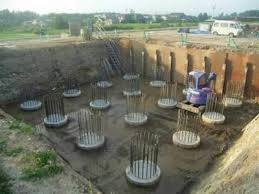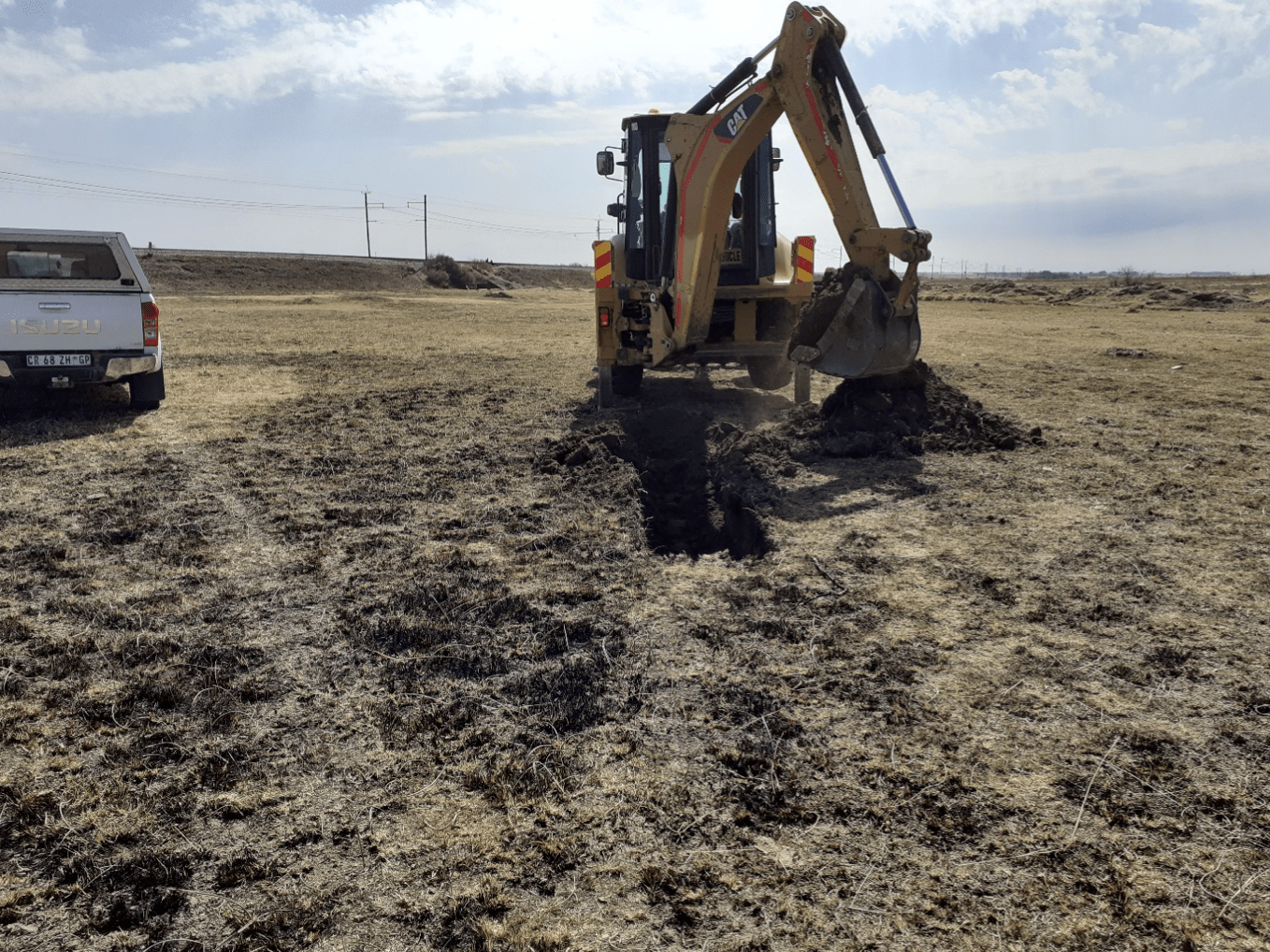Geotechnical Engineer Description: What to Anticipate from These Professionals
Geotechnical Engineer Description: What to Anticipate from These Professionals
Blog Article
The Importance of Geotechnical Engineering in Addressing Ecological Obstacles and Enhancing Building And Construction Safety And Security
Geotechnical design serves as a keystone in the intersection of ecological stewardship and construction safety and security, offering critical insights right into the behavior of dirt and rock under various conditions. By applying tactical site examinations and tailored mitigation actions, geotechnical engineers play an essential role in securing both human lives and eco-friendly stability.

Duty of Geotechnical Design
Geotechnical engineering plays an important function in the style and construction of infrastructure by addressing the behavior of dirt and rock products under various problems. This field of engineering is crucial for comprehending the interaction in between frameworks and the ground, that includes determining the load-bearing capability of soil, evaluating stability, and forecasting possible settlement or failing.
Geotechnical designers are in charge of conducting website examinations, which involve tasting and screening soil and rock to collect data on their physical and chemical residential or commercial properties. This details is crucial for developing structures, keeping wall surfaces, and various other earth-retaining structures that guarantee security and longevity. Geotechnical engineering educates the selection of ideal construction approaches and materials, consequently minimizing dangers linked with soil actions.
Moreover, the combination of geotechnical design principles right into city planning and ecological monitoring is important for resolving challenges such as ground contamination and groundwater administration. By understanding geotechnical aspects, engineers can develop sustainable remedies that enhance the durability of facilities versus all-natural risks, while likewise advertising ecological stewardship. Ultimately, the role of geotechnical engineering is vital for achieving safe, resilient, and ecologically aware construction practices.
Soil Erosion Reduction
Dirt disintegration postures a significant risk to both environmental security and framework honesty, influencing about 24 billion lots of productive soil lost every year worldwide. This sensation is aggravated by variables such as logging, urbanization, and poor farming techniques. Geotechnical design plays an essential role in developing effective dirt erosion reduction strategies that safeguard both the environment and construction projects.
One strategy requires the execution of disintegration control techniques such as greenery planting, which stabilizes dirt with root systems. Furthermore, the building of retaining walls and terraces can properly decrease surface area overflow and shield prone areas from disintegration. Appropriate drain style is additionally critical; it minimizes water buildup and routes excess overflow away from critical frameworks.
Additionally, geotechnical engineers use dirt stabilization strategies, such as the application of geotextiles and naturally degradable mats, to boost soil communication and stop degradation - geotechnical specialist. Normal monitoring and analysis of erosion-prone sites make it possible for timely treatments, guaranteeing lasting sustainability. By integrating these approaches, geotechnical engineering not just reduces the influences of soil disintegration but likewise adds to the durability of framework against environmental obstacles, ultimately cultivating a safer and a lot more lasting built setting
Groundwater Protection Techniques
Groundwater functions as a vital source for drinking water, agriculture, and commercial procedures, making its protection necessary for ecological sustainability and public health. Efficient groundwater defense strategies are vital in alleviating contamination risks and making sure the long life of this source.

Regular tracking of groundwater quality is additionally vital, enabling very early detection of contamination resources and helping with prompt remediation initiatives. Employing innovative technologies, such as geophysical studies and remote sensing, help in identifying prospective threats to groundwater books.
Furthermore, public education and learning and stakeholder engagement are critical, promoting area support for groundwater security campaigns. geotechnical engineer description. By combining regulative measures, technological improvements, and community involvement, we can produce a thorough framework that safeguards groundwater resources while advertising lasting development and building methods
Landslide Threat Management
Landslides position considerable hazards to both human safety and infrastructure, making efficient danger monitoring approaches important. Geotechnical engineering plays a vital duty in recognizing, assessing, and mitigating landslide risks. An extensive understanding of incline security, soil auto mechanics, and hydrology is crucial for creating reliable threat monitoring strategies.
The very first step in landslide threat monitoring entails thorough site examinations, which consist of geological mapping and dirt screening. These examinations assist designers review the possibility for landslides by recognizing essential variables such as incline angles, dirt structure, and water material. Using advanced technologies such as remote sensing and geophysical studies can boost the accuracy of these evaluations.
Once risks are recognized, proper reduction steps can be implemented. These might consist of engineering solutions such as retaining wall surfaces, drain systems, and slope stablizing techniques. Checking systems must be established to identify indications of ground movement and modifications in water levels, permitting for proactive treatments.

Enhancing Construction Safety
Construction sites often present a myriad of hazards that can jeopardize employee safety and security and job stability. Geotechnical engineering plays a vital function in enhancing construction safety and security by giving crucial understandings into subsurface conditions. Through thorough dirt and rock analysis, geotechnical engineers can recognize possible dangers, such as soil instability, groundwater concerns, and seismic susceptabilities, which might jeopardize the safety of construction tasks.
Applying geotechnical services, such as correct foundation layout and the usage of keeping frameworks, mitigates these dangers significantly. These services not just ensure the stability of the structures being built yet additionally create a safer working setting for construction workers.
Additionally, cultivating a society of safety and security through training and adherence to established safety protocols even more link improves building website security. By incorporating geotechnical experience right into the preparation and implementation stages, building and construction tasks can attain greater security requirements, inevitably shielding employees and making certain effective job completion.
Final Thought
In final thought, geotechnical engineering works as a critical discipline in promoting and taking on ecological difficulties building safety. Via reliable soil erosion reduction, groundwater security techniques, and landslide risk monitoring, geotechnical designers add to the growth of resistant facilities. The integration of these techniques promotes a safer building and construction atmosphere and enhances the sustainability of civil design jobs. Ultimately, the experience of geotechnical designers is essential in safeguarding both natural deposits and human lives versus potential threats.
Geotechnical design serves as a foundation in the intersection of ecological stewardship and building and construction safety, supplying critical insights right into the behavior of soil and rock under different problems. Geotechnical engineering notifies the choice of appropriate construction techniques and products, therefore reducing dangers linked with soil behavior.
Geotechnical engineering plays an essential duty in developing effective soil disintegration reduction approaches that safeguard both Visit Your URL the environment and construction tasks.
Additionally, geotechnical designers utilize dirt stabilization techniques, such as the application of geotextiles and biodegradable mats, to boost dirt cohesion and avoid destruction. With comprehensive dirt and rock evaluation, geotechnical engineers can recognize possible threats, such as dirt instability, groundwater concerns, and seismic susceptabilities, which might endanger the safety and security of building and construction tasks.
Report this page